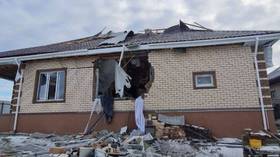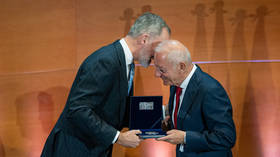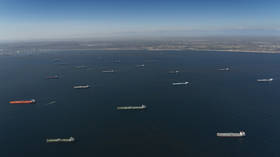Lone defectors & possible US shale rise: What could threaten the oil market after OPEC+ deal
Despite the Organization of the Petroleum Exporting Countries (OPEC) and allied oil producers, known as OPEC+, agreeing to extend historic production cuts by one month, there could still be challenges ahead for the energy market.
During their virtual meeting on Saturday, the 23 key global oil exporters decided to continue slashing their combined output by 9.7 million barrels per day (bpd) – roughly 10 percent of global production – through July instead of easing the curbs as planned. According to initial plan signed in April to boost crude prices, the restrictions were set to drop to 7.7 million bpd in July and remain at this level for the rest of the year.
While the final OPEC+ statement said that all participants support the accord, it later transpired that Mexico will not cut its production for another month. While the lone dissenter said it would stick to the original agreement, its reluctance to cap its crude production was one of the main stumbling blocks in finalizing the long-anticipated oil deal back in April.
Also on rt.com Russia to drill new oil wells to be ready to go when current OPEC+ production cut deal expires in 2022“Mexico’s position was clear from the beginning, in April. It came as no surprise to anybody that they are not willing to reduce production in July,” Iran's OPEC governor Amir Hossein Zamaninia said after Saturday’s meeting.
Mexico's defection from the pact means it will be able to resume its efforts to boost output in line with President Andres Manuel Lopez Obrador’s promises. Mexico’s contribution is just 100,000 bpd, with another 250,000 compensated for by the US.
The rise of American oil production could also be a headache for the oil market, which has just started to rebalance. According S&P Global Platts, the oil prices rally has already prompted several US shale operators to scale back their production curtailment plans.
“Potential supply increases from both within and outside the OPEC+ alliance could dilute the deal's impact and delay the rebalancing of the market,” analysts at S&P Global Platts wrote.
Compliance of some states in the 23-member coalition could be another challenge for the future of the deal and for the whole energy market, which is still under tremendous pressure due to the coronavirus pandemic. In May, when the landmark accord took effect, the OPEC+ members delivered around 90 percent of the output cuts they pledged, according to Russia’s Energy Minister Alexander Novak.
Iraq, Nigeria, Angola and Kazakhstan were among those who failed to keep to their end of the bargain last month, but the fresh agreement implies that those nations will compensate by implementing deeper cuts in their overproduction for July, August and September.
However, there are no guarantees that they will manage this task, some analysts note. For example, OPEC's second-largest producer, Iraq, could miss the target production level again due to fractured politics and financial challenges that will come should it force international oil companies partners to shut down production, S&P says.
“If Iraq is being asked to make up 600,000 bpd of cuts missed in May over the next few months in addition to their one million bpd of commitments, ... that is an almost impossible ask, one that Iraq is highly unlikely to meet and the market would not view as credible," said Mohammad Darwazah, an analyst with Medley Global Advisors.
For more stories on economy & finance visit RT's business section















